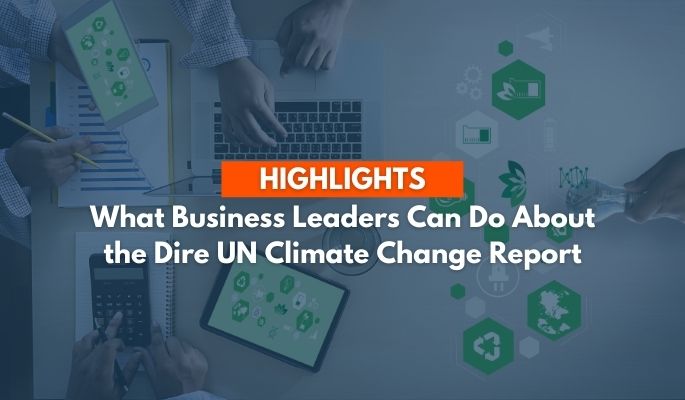
The recent IPCC Report from the UN has stated that human activity is the cause of climate change. How bad is it really? Governments, businesses or community – who is going to accelerate change? Here are some insights from Capital Club’s recent online conversation between Adrienne Doolan, CEO of Green Touch Echoes of Sustainability and Pedro Pereira, Head of Climate Action and Responsible Innovation, SAP EMEA South.
The landmark assessment of the IPCC report involved 234 authors, 66 country experts, and 14,000 scientific studies carried out over three years. The bottom line: ‘Global temperatures will reach or exceed 1.5 degrees Celsius in the next 20 years, and human activity are the cause of climate change.’
Interestingly, the first IPCC report released in 1990 stated, “Climate change is a global issue. Effective responses would require a global effort that may have considerable impact on humankind and individual societies.”  And the 2021 IPCC report says, “It is unequivocal that human influence has warmed the atmosphere, ocean and land, widespread and rapid changes in the atmosphere, ocean, cryosphere and biosphere have occurred.” And even with the 2015 Paris Agreement, signed by 193 countries, progress is extremely slow.
The recent IPCC report is divided into three working groups: 1. Physical Science; 2. Adaptation; 3. Mitigation. The first group, that is getting most of the attention shows the impact on the world, and the latter two groups are proposing potential solutions. It would be prudent for the IPCC to leverage their organizational strength to advise governments as well. The hope is that this report will invigorate the decision-makers at COP26 in the UK planned between 31 October and 12 November 2021, to have more meaningful discussion and mandate change. The President for COP 26, Alok Sharma has said, “The next decade is decisive. Follow the science and embrace your responsibility to keep the goal of 1.5 degrees Celsius alive.”
The exhortation to the business community is that it can no longer afford to continue business as normal and ignore what the supply chain is doing. Partnership and transparency are key, and the mandate is for business leadership to take responsibility to initiate change. Technology also plays a vital role in finding solutions but is not being implemented substantially. Business will have to strategize to reduce emissions, however the challenge is in understanding how to calculate scope three emissions. Food waste is another serious challenge and will require real estate developers and building management to find recycling solutions.
The plea to consumers is to become more educated, aware and conscious about their purchases, which in turn will force businesses to make changes towards more sustainable products and services.
The call to action to government is to urgently increase regulations, monitor the private sector and invite more public private partnerships.

